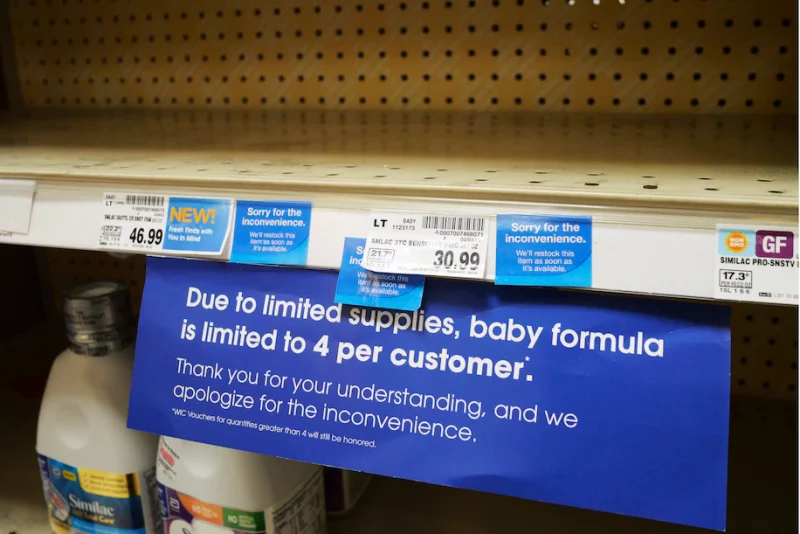Baby Formula Shortage Taking Toll on Black Mothers, Families
Share
Explore Our Galleries
Breaking News!
Today's news and culture by Black and other reporters in the Black and mainstream media.
Ways to Support ABHM?
By Erika Dubose, The Black Wall Street Times

A nationwide baby formula shortage is wreaking havoc on Black parents and babies, who are disproportionately impacted by the lack of access to the necessary nutrients to grow and thrive.
With shelves across the country running low baby formula, some stores are rationing. In fact, five states are at critically low levels of infant formula.
Roughly 43% of the top-selling baby formula products at national retailers were out of stock as of the week ending May 8, according to the most recent analysis from Datasembly
[…] And Black families are hit the hardest. Formula is very expensive, with a yearly estimated cost between $1200 and $1500. Many Black families are more likely to work poverty-level jobs, according to Economic Policy Institute.
[…] While some women are able to breastfeed their infants, Black women have much lower rates of initiating breastfeeding and maintaining a milk supply as they’re more likely to face barriers to breastfeeding. They include: “lack of knowledge about breastfeeding; lack of peer, family, and social support,” among other reasons, according to a study from the Centers for Disease Control.
Check out the original article to learn how the formula shortage impacts Black families.
Unfortunately, this shortage comes just weeks after Biden pledged to support Black mothers, who suffer from biological weathering as a result of racism.
Our breaking news articles help you stay in the know.









Comments Are Welcome
Note: We moderate submissions in order to create a space for meaningful dialogue, a space where museum visitors – adults and youth –– can exchange informed, thoughtful, and relevant comments that add value to our exhibits.
Racial slurs, personal attacks, obscenity, profanity, and SHOUTING do not meet the above standard. Such comments are posted in the exhibit Hateful Speech. Commercial promotions, impersonations, and incoherent comments likewise fail to meet our goals, so will not be posted. Submissions longer than 120 words will be shortened.
See our full Comments Policy here.